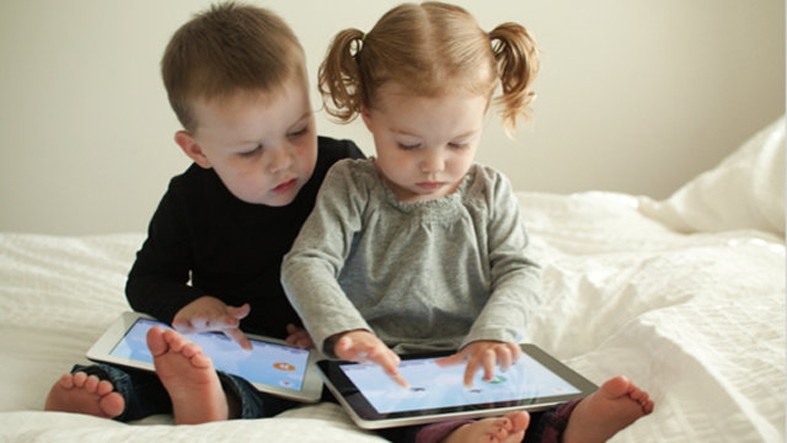
Overwhelmed by the tiring routines of busy daily lives, parents tend to give tablets to little children to keep them entertained. However, what young children actually need are strong family bonds for their overall development
While the progress of technology and its accessibility improves our lives, it may also impede communication skills in children, and tablets and smart phone use should be very limited for children of all ages.
Highlighting the importance of introducing children to technological devices as late as possible, specialist psychologist and pedagogue Reyhan Ateş Yücel noted that this is especially crucial for children between birth and 7 years old, the ages in which the brain develops the most. "Technological devices may have a negative effect on the socialization and communication of children at these ages. During the pre-school period, children do not need tablets but healthy bonds with their caregivers. Since preschool children do not have the anatomical structure to handle stimuli from the screens, they may experience anxiety while trying to fall asleep, while sleeping and restlessness throughout the day. In their first year, children need real interactions where they can use their five senses and give responses to develop their own voice, laugh and reactions. This development lies in parents establishing a healthy bond with their child," said Yücel.
Today's caregivers: Smart devices
Yücel noted that during these fast and rushed times, most parents prefer smart devices instead of playing games and spending time with their children; thus, tablets and smart devices have become the new caregivers at home. "Children do not eat without the tablet or can't sleep without listening to songs on their devices. Family dinners, where once conversations were the center of attention, are now being replaced with interactive tablets. However, a child's first year is crucial in establishing a healthy relationship with parents and is what forms the basis of the child's psychological development and learning base.Long-term tablet use is closely related to attention disorders. Attention problems, problems in delaying pleasure and adaptation problems have been observed in children who were exposed to long-term use of technological devices during their infancy when they start school," Yücel said. She further noted that while tablets are fun, they also distract children from the real world and experiences. When compared with the colorful, moving and fast virtual environment, real life seems extremely boring which increases impulsive behavior and leads to impatience at school, according to Yücel.
Yücel emphasized the importance of keeping tablets and smart phones far away from children and noted that during the school year, they should be used in moderation. "Children need guidance for their homework and need to be able to access information and use it properly during school and at home. As children grow, there may be applications they are interested in, information they want to access and even play virtual games to play. However, these should be previewed and their usage minimal. Mobile phones should only be bought for older children after they hit puberty," Yücel added.
Highlighting the influence that adult use has on children, Yücel added that parents who give tablets to children to keep them busy should be careful. She explained having a set schedule for eating, sleeping and technology use is crucial as families need to spend time together and interact with each other. She also stressed that children's experience in the real world is crucial to their overall development.
